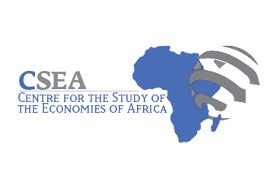The Centre for the Study of Economies of Africa (CSEA), a research organization with special focus on developments in Africa’s economies, has advised the Federal Government to prioritize policies aimed at improving aggregate supply in the economy to slow down inflation rate and spur growth in critical sectors of the economy.
The research think-tank analysts in the latest 2022 Nigeria Economic Update Issue No 2 sourced by our correspondent gave this advice against the rising inflation rate and its attendant negative implications for the economy.
The experts noted that the just published CPI report by the National Bureau of Statistics (NBS), indicated Nigeria’s headline inflation rate increased on a month-on-month basis, from 15.40 percent in November 2021 to 15.63 percent in December 2021.
According to figures, this represents a 1.8 percent increase, breaking an eight-month streak of headline inflation declines since April 2021. However, on a year-on-year comparison, the headline inflation rate decreased by 0.13 percent from 15.75 percent recorded in December 2020.
The CSEA analysts further noted that the Bureau reported that the increased rate of inflation recorded in December was largely due to increase in aggregate demand as a result of the festive season, noting that expectations are that the rate of inflation for January would decline due to lower demand levels.
Noting that a double-digit inflation rate translates to lower purchasing power, which also translates to lower quality of life, the CSEA experts pointed out that it was important that policies aimed at improving aggregate supply be prioritized.
They recommended: “This can be achieved by leveraging and scaling up the real sector intervention programs of the Central Bank of Nigeria (CBN), improving economic infrastructure to boost productivity, and improving national security to address the sub-optimality in agricultural productivity.”




